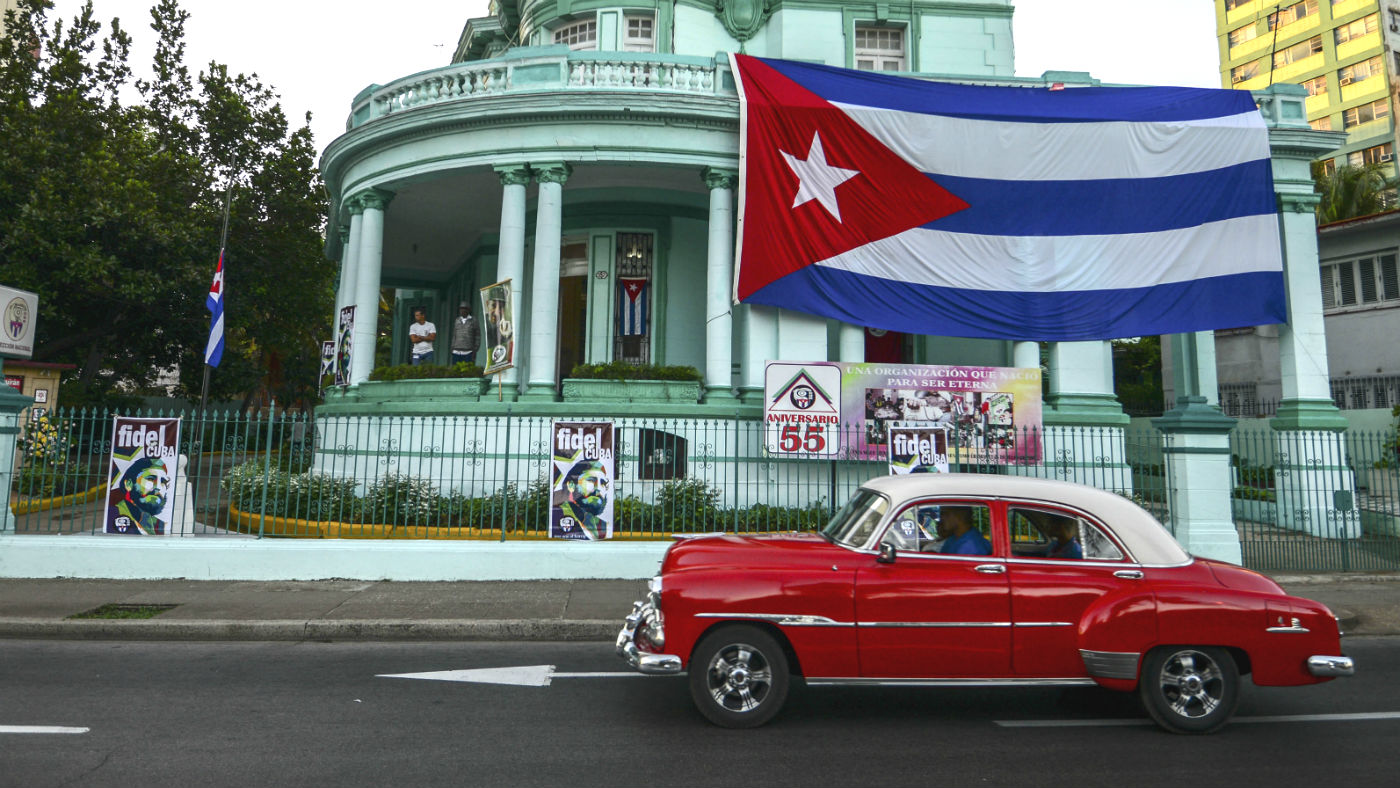Cuba and Russia agree new economic ties as US turns inwards
Communist Caribbean island rekindles Cold War alliances as Moscow looks to fill void left by US

A free daily email with the biggest news stories of the day – and the best features from TheWeek.com
You are now subscribed
Your newsletter sign-up was successful
Cuba has significantly boosted its trade links with Russia, as it looks offset the economic damage done by the renewal of US sanctions.
Under President Trump, the US has reversed its Obama-era policy of increasing engagement with Cuba, leading the communist Caribbean island to rekindle Cold War relationships with its former Soviet ally.
While its main trading partner remains China, the government in Havana is in the process of negotiating a series of new trade deals with Russian state companies. There has already been an 81% jump in Russian exports to the island this year alone.
The Week
Escape your echo chamber. Get the facts behind the news, plus analysis from multiple perspectives.

Sign up for The Week's Free Newsletters
From our morning news briefing to a weekly Good News Newsletter, get the best of The Week delivered directly to your inbox.
From our morning news briefing to a weekly Good News Newsletter, get the best of The Week delivered directly to your inbox.
Last weekend, Igor Sechin, the head of Russian state oil company Rosneft, travelled to Havana to meet Cuban President Raul Castro to discuss a possible new energy deal between the two countries.
In May, Rosneft started shipping oil to Cuba for the first time since the Cold War and, in a symbolic move, 300 new Russian-made Lada cars will be delivered to Cuba next month, replacing some of the decades-old Soviet vehicles that have dominated Cuba’s streets for decades. Russia has also recently agreed to write off $35bn in debt that Cuba owed from the Soviet era.
Reuters says “it is all part of a broader move by Moscow to renew commercial, military and political ties just as the US government is retreating from Cuba under President Trump”. The Independent says Moscow “is seizing on that rollback as a way to undermine American influence in its own backyard”.
Jason Marczak, Director at the Adrienne Arsht Latin America Center told Reuters that this was a risky strategy and could have serious economic consequences further down the road
A free daily email with the biggest news stories of the day – and the best features from TheWeek.com
“The more the Russian footprint increases in Cuba, the more that will reinforce hardened anti-US attitudes and shut out US businesses from eventually doing greater business in Cuba,” he warned.
-
 Bad Bunny’s Super Bowl: A win for unity
Bad Bunny’s Super Bowl: A win for unityFeature The global superstar's halftime show was a celebration for everyone to enjoy
-
 Book reviews: ‘Bonfire of the Murdochs’ and ‘The Typewriter and the Guillotine’
Book reviews: ‘Bonfire of the Murdochs’ and ‘The Typewriter and the Guillotine’Feature New insights into the Murdoch family’s turmoil and a renowned journalist’s time in pre-World War II Paris
-
 Witkoff and Kushner tackle Ukraine, Iran in Geneva
Witkoff and Kushner tackle Ukraine, Iran in GenevaSpeed Read Steve Witkoff and Jared Kushner held negotiations aimed at securing a nuclear deal with Iran and an end to Russia’s war in Ukraine
-
 Trump’s fuel blockade puts Cuba in crisis mode
Trump’s fuel blockade puts Cuba in crisis modeIN THE SPOTLIGHT Plummeting tourism, scrambling airlines and rolling blackouts are pushing Cuban society to the brink
-
 Epstein files topple law CEO, roil UK government
Epstein files topple law CEO, roil UK governmentSpeed Read Peter Mandelson, Britain’s former ambassador to the US, is caught up in the scandal
-
 Iran and US prepare to meet after skirmishes
Iran and US prepare to meet after skirmishesSpeed Read The incident comes amid heightened tensions in the Middle East
-
 Israel retrieves final hostage’s body from Gaza
Israel retrieves final hostage’s body from GazaSpeed Read The 24-year-old police officer was killed during the initial Hamas attack
-
 China’s Xi targets top general in growing purge
China’s Xi targets top general in growing purgeSpeed Read Zhang Youxia is being investigated over ‘grave violations’ of the law
-
 Panama and Canada are negotiating over a crucial copper mine
Panama and Canada are negotiating over a crucial copper mineIn the Spotlight Panama is set to make a final decision on the mine this summer
-
 Why Greenland’s natural resources are nearly impossible to mine
Why Greenland’s natural resources are nearly impossible to mineThe Explainer The country’s natural landscape makes the task extremely difficult
-
 Iran cuts internet as protests escalate
Iran cuts internet as protests escalateSpeed Reada Government buildings across the country have been set on fire